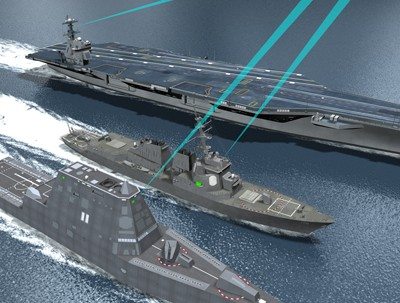Lockheed Martin held a successful critical design review for an electronic warfare system upgrade that will defend U.S. Navy surface combatants from evolving anti-ship missile threats.
Under the Surface Electronic Warfare Improvement Program (SEWIP), the Navy is pursuing an evolutionary succession of enhancements to its AN/SLQ-32 electronic warfare system currently installed on aircraft carriers, cruisers, destroyers and other U.S. warships. A series of SEWIP block upgrades will incrementally add new defensive technologies and functional capabilities.
“Block 2 establishes a framework for the Navy to easily integrate future block upgrades of the most current electronic warfare technology to defend the fleet,” explained Joe Ottaviano, Lockheed Martin’s SEWIP program director. “This critical milestone validates our design and serves as the contractual go-ahead to produce two system prototypes by 2012.”
Lockheed Martin’s modular solution for SEWIP Block 2 is based on its own Integrated Common Electronics Warfare System demonstrator, which operated over water for risk reduction in October 2010. This approach uses commercial-off-the-shelf electronics and provides the Navy with the latest surface ship electronic warfare capabilities, as well as enhanced flexibility to upgrade the technology to address emerging threats.
In November 2009, Lockheed Martin was awarded an initial $9.9 million contract to develop SEWIP Block 2 with options totaling nearly $167 million. In July 2010, the Navy exercised the first option for $51.1 million and approved Lockheed Martin’s preliminary design for Block 2.
Headquartered in Bethesda, Md., Lockheed Martin is a global security company that employs about 132,000 people worldwide and is principally engaged in the research, design, development, manufacture, integration and sustainment of advanced technology systems, products and services. The Corporation’s 2010 sales from continuing operations were $45.8 billion.











